Classic Albums featuring Stewart Copeland
Jazz, prog, punk, reggae and world music united by drum and cymbal mastery
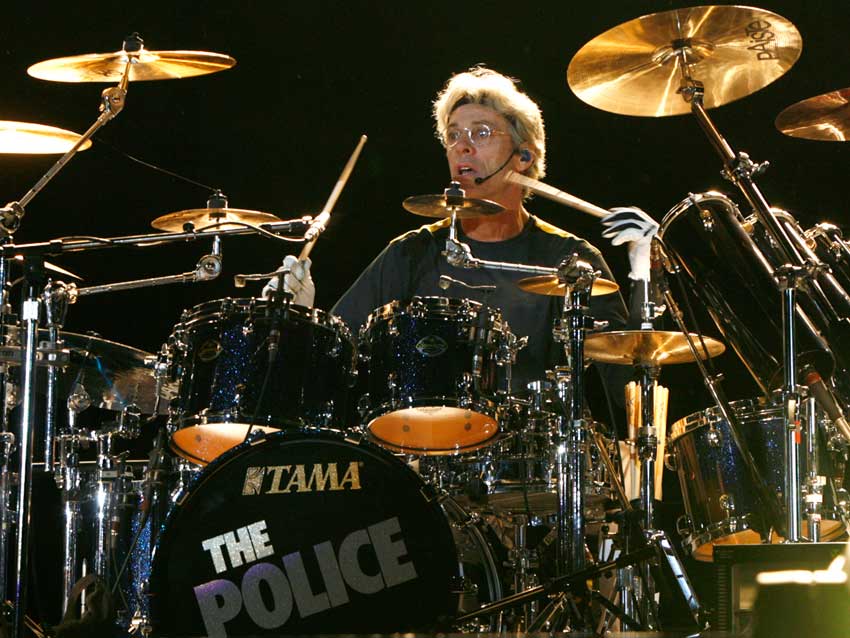
Stewart Copeland
Best known for his work with The Police, Stewart Copeland’s distinctive drum sound and uniqueness of style has made him one of the most popular drummers ever get behind a drumset.
From his unique upbringing as the son of a US diplomat, that meant he was brought up surrounded by the influence of Arabic music in the Middle East, and landed in London just in time for punk, he has been able to take a huge number of musical and percussive styles, absorb them, replicate and reuse them in a completely individual way. Reggae, of course, has been one of the main influences on his playing with the Police, but Stewart’s tight pop/rock beats are much admired, and he’s played prog, fusion, funk metal and world music styles; contributing notably to Peter Gabriel’s So, the former Genesis man having requested Copeland to play on ‘Red Rain’ for his hi-hat mastery.
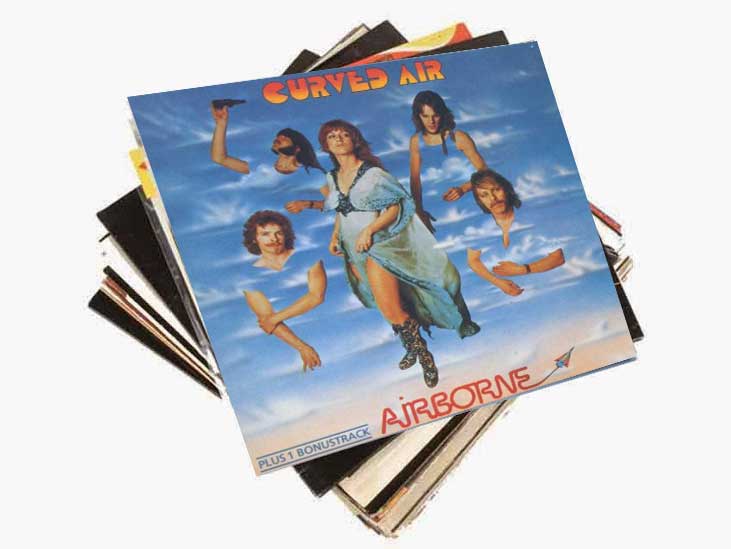
Airborne (1976)
Before punk, there was prog; and in 1974 the young Stewart joined up with Sonja Kristina’s violin-toting prog rockers, drumming first on 1975’s Air Cut but finding his feet, and contributing songs to Airborne after the canny young American worked out you get paid more if you’re a songwriter.
Unsurprisingly, the Copeland-penned tracks ‘Heaven’ and ‘Desiree’ are drum highlights also; on the former he tears round the kit like a seasoned progger yet with a tightness and snare sound that would become his stock-in-trade; the later almost sounds like a Police track until Sonja Kristina’s vocals start up. An impressive foreshadowing.
Key track: ‘Heaven’
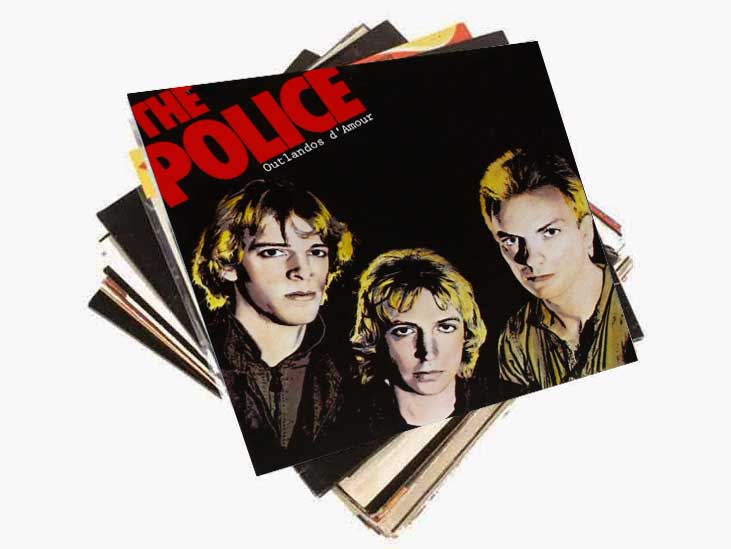
Outlandos D'Amour (1978)
That the Police’s debut still contains some of their most memorable tracks is testament to a band arriving fully-formed on the scene.
The Police were musos by comparison to their punk contemporaries; much of this down to the undoubted skill and versatility of their drummer. ‘So Lonely’ and ‘Roxanne’ set the template for much of their career; tight reggae beats in the verses, breakout pop/rock choruses. Both of which are delivered with finesse and a tight snare crack; and his hi-hat work even here is exemplary. ‘Can’t Stand Losing You’ opens with a classic reggae lead-in fill, and the tight stabs of Copeland’s playing, together with rim-clicks, typify his style.
Key track: ‘Can’t Stand Losing You’
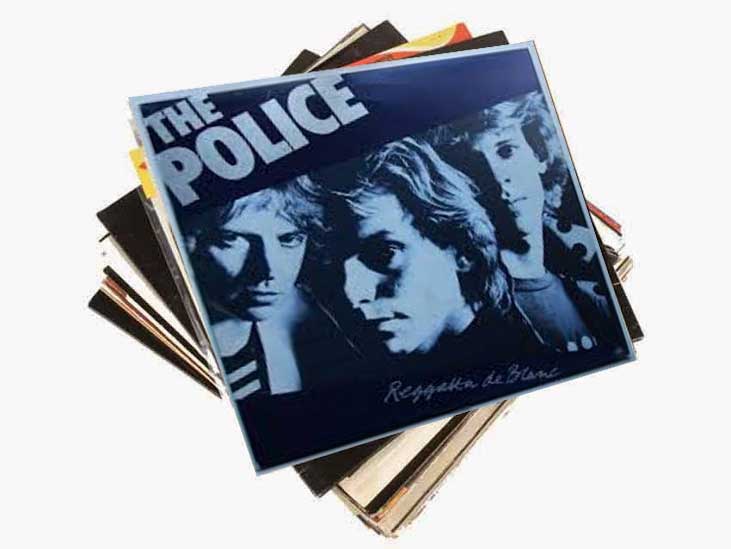
Reggatta De Blanc (1979)
Rim clicks and incredible hi-hat patterns embellish the title track; pop reggae never sounded so cool as on ‘Walking On The Moon’, again replete with that hi-hat individuality that makes his playing such a joy.
His tight snare crack again evokes an Afro-Caribbean timbale feel, and reggae-style delay effects applied here to great effect, creating a spacey atmosphere. ‘Message In A Bottle’ is another drumming delight – hi-hat triplets and crashes on the upbeats and machine-gun snare fills; it’s double-tracked though, so don’t feel so bad if you can’t replicate it perfectly!
Key track: ‘Message In A Bottle’
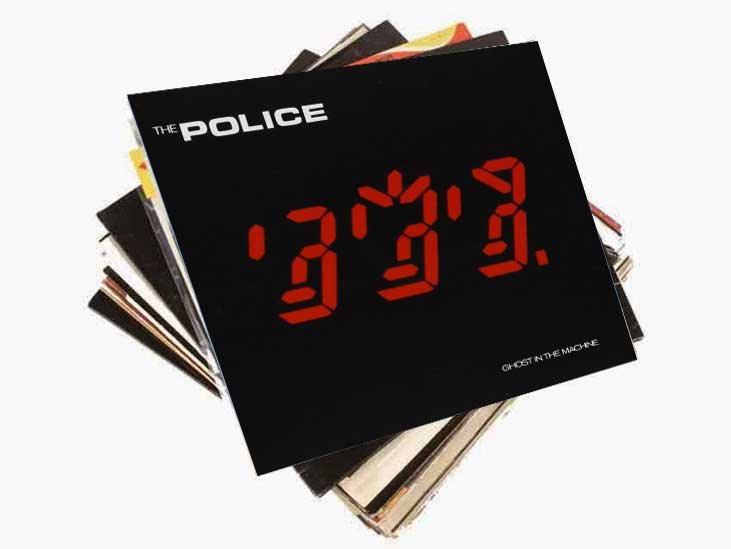
Ghost In The Machine (1981)
By 1981 The Police were a major pop act, but Copeland’s evolving style was always equal to it. By now, his drum sound had become as distinctive as Bonham’s had been, and equally one of the most sought-after by drummers to this day.
The key elements to Copeland’s playing are all here in the likes of ‘Spirits In The Material World’ and ‘Invisible Sun’; namely, his ability to embellish a groove with all manner of unobvious accents, his use of polyrhythms and ability to imply and odd meter on the most chart-topping of records. The real stand-out here though is ‘Every Little Thing She Does Is Magic’ – sheer hi-hat magic, with a tricky hat rhythm that he varies throughout, made fuller by use of delay, and some intricate ride-bell work over the top – no mean feat of independence against what his right foot is doing.
Key track: ‘Every Little Thing She Does Is Magic’
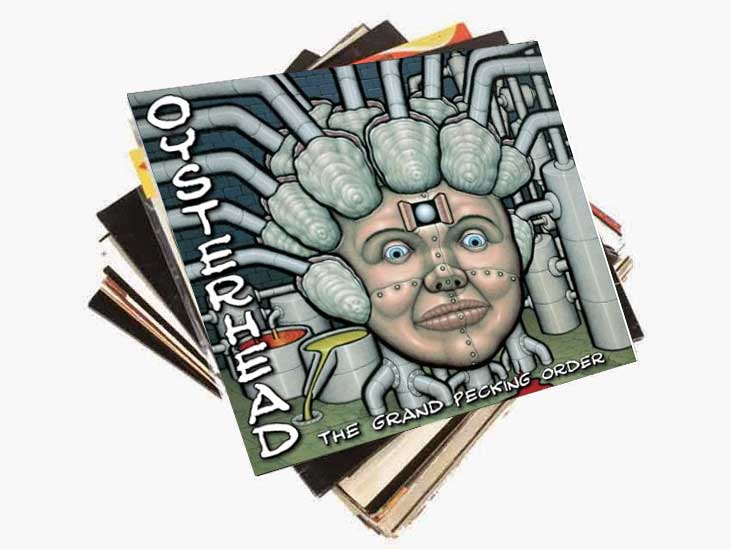
The Grand Pecking Order (2001)
When Phish’s Trey Anastasio and Les Claypool of Primus were putting together a band for the New Orleans Jazz Fest, who would they turn to to occupy the drum throne than their hero, Stewart Copeland. The trio threw up one crazy album of intensely groovy but sometimes bonkers funk metal, with slippery grooves and polyrhythmic beats a-plenty; Copeland clearly relishing his chance to spar with bass maestro Claypool and bring his trademark cymbal-pattern genius to bear on tracks like ‘Mr Oysterhead’, ‘Little Faces’ – a superb ride-bell pattern playing against Stewart’s complex snare pattern – jazz-fusiony ‘Rubberneck Loins’ and heavy ‘Pseudo Suicide’.
Key track: ‘Little Faces’